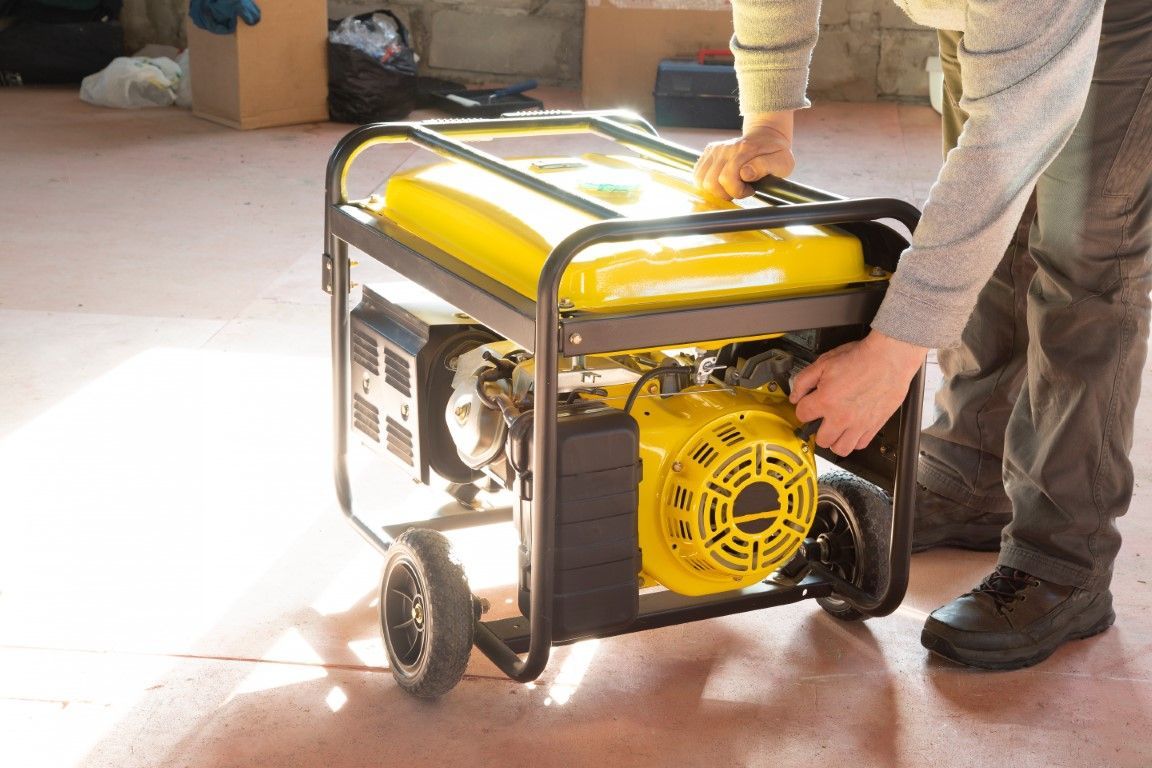
Portable Generators in Norfolk VA
A portable generator is a versatile power source designed to provide electricity in various situations where traditional power supplies are unavailable. These generators are compact and can be easily moved, making them ideal for a range of applications. Whether you need backup power during an outage, power for outdoor events, or electricity at a job site, a portable generator can be an essential tool to keep things running smoothly.
Types and Key Features to Consider
There are several types of portable generators, each suited for different needs:
- Inverter Generators: These generators are known for their quiet operation and stable power output, making them suitable for sensitive electronics and residential use. They are typically more fuel-efficient and provide cleaner power.
- Conventional Generators: These are more powerful and can handle larger loads but may be noisier and less efficient than inverter models. They are often used for heavy-duty tasks and are generally more affordable.
- Dual-Fuel Generators: As the name suggests, these can run on either gasoline or propane, offering flexibility and extended operation times.
When choosing a portable generator, consider key features such as power output (measured in watts), fuel type, runtime, portability, and noise levels. Ensure that the generator you select meets your power needs and fits your usage scenarios.

We will get back to you as soon as possible.
Please try again later.
Uses and Importance
Portable generators serve a variety of purposes. They are commonly used during power outages to keep essential appliances running, such as refrigerators, lights, and medical equipment. They are also useful for outdoor events like camping or tailgating, providing power for lighting, cooking equipment, and entertainment systems. In industrial and construction settings, they can supply electricity for tools and machinery, ensuring that work can continue even when a reliable power source is not available.
Maintenance and Care
To ensure your portable generator remains in good working condition, regular maintenance is crucial. This includes checking and changing the oil, cleaning or replacing the air filter, and inspecting the spark plug. It’s also important to keep the generator clean and free of debris. Regularly running the generator, even when not in use, helps keep the engine in good condition and prevents issues caused by inactivity.
Proper Usage, Location, and Ventilation
Proper usage of a portable generator is essential for safety and efficiency. Always operate the generator outdoors in a well-ventilated area to avoid the buildup of harmful exhaust fumes. Place the generator on a flat, stable surface to prevent tipping and ensure proper operation. Never use a generator indoors or in partially enclosed spaces, as this can lead to dangerous carbon monoxide poisoning. Use extension cords rated for outdoor use to connect your appliances and avoid overloading the generator.
Popular Brands and Models
Several brands are renowned for their reliable and efficient portable generators. Some of the popular brands include Honda, Yamaha, and Generac. Honda generators are known for their quiet operation and fuel efficiency, while Yamaha models are praised for their durability and advanced technology. Generac offers a range of models suitable for both residential and commercial use. Researching and comparing different models can help you find the generator that best suits your needs.
If you’re considering a
portable generator in Norfolk, VA, we’re here to help. Our team can assist you in selecting the right generator, provide installation services, and offer guidance on maintenance and care. Contact us today to learn more about how a portable generator can benefit you and to find the perfect solution for your power needs.
The Most Fuel-Efficient Portable Generators on the Market
In an era where energy efficiency is crucial, selecting a portable generator that offers exceptional fuel efficiency can save both money and resources. Whether you're preparing for a camping trip, powering up during a blackout, or need backup power for tools and appliances, understanding which generators maximize fuel usage is essential. This guide explores the top options on the market, highlighting their fuel efficiency to help you make an informed decision.

Honda EU2200i
The Honda EU2200i stands out for its impressive fuel efficiency, boasting up to 8.1 hours of runtime on just a single gallon of fuel. This model is known for its reliable performance and quiet operation, making it ideal for both recreational and emergency use. Its inverter technology ensures stable power for sensitive electronics, enhancing its versatility.
Yamaha EF2000iSv2
The Yamaha EF2000iSv2 is another top contender, offering up to 10.5 hours of operation on a single tank of gas. This generator combines efficiency with portability, featuring a lightweight design and advanced inverter technology. It's a great choice for camping and tailgating, providing quiet and clean power for various applications.
Westinghouse iGen4500
For those needing a bit more power, the Westinghouse iGen4500 delivers excellent fuel efficiency with up to 18 hours of runtime on a 3.4-gallon tank. This generator is equipped with an extended run time feature and is ideal for larger appliances and tools. Its user-friendly controls and quiet operation make it a convenient choice for extended power needs.
Champion 3400-Watt Dual Fuel Inverter Generator
The Champion 3400-Watt Dual Fuel Inverter Generator is versatile, offering the option to run on either gasoline or propane. It provides up to 7.5 hours of runtime on gasoline and up to 14.5 hours on propane. This flexibility not only enhances fuel efficiency but also offers the convenience of choosing the fuel source based on availability and cost.
Generac iQ3500
Generac's iQ3500 is designed with efficiency and ease of use in mind. It delivers up to 8.5 hours of runtime on a 2.6-gallon tank and features an innovative PowerRush technology that provides more starting wattage when you need it most. Its quiet operation and compact size make it suitable for both recreational and emergency use.
Choosing the right portable generator involves balancing fuel efficiency with your power needs and usage scenarios. If you have any questions or need assistance in selecting the most suitable generator for your needs, feel free to contact us. Our team is here to help you make an informed decision and ensure you get the best value for your investment. Reach out to us today for personalized advice and support.
How to Use a Portable Generator to Power Your Essential Appliances
Portable generators are incredibly useful tools for ensuring that you have power when the main electricity supply is unavailable. Whether you’re dealing with a power outage, preparing for an emergency, or simply need additional power on a camping trip, knowing how to properly use a portable generator can make a big difference. This guide will walk you through the steps to safely and effectively use a portable generator to keep your essential appliances running.
Select the Right Generator for Your Needs
Before you start, it’s crucial to choose a generator that matches your power requirements. Portable generators come in various sizes and capacities. To determine the appropriate generator, calculate the wattage needed for the appliances you plan to power. Essential appliances typically include your refrigerator, freezer, heating or cooling systems, and lighting. Check each appliance’s power rating, and add them together to find out your total wattage requirement. For instance, a refrigerator might need around 800 to 1,200 watts, while a freezer could require an additional 600 to 800 watts. Select a generator with a wattage capacity that exceeds your total needs to ensure smooth operation.
Place the Generator in a Safe Location
Safety is paramount when using a portable generator. Always place the generator outdoors in a well-ventilated area, away from any windows, doors, or vents. Generators produce carbon monoxide, which is a dangerous gas that can accumulate indoors and cause serious health issues or even death. Position the generator on a dry, level surface to prevent it from tipping over and ensure it’s protected from the elements, like rain or snow. Use a generator cover designed for outdoor use if you need to shield it from the weather.
Connect Your Appliances Properly
Once your generator is in place, you need to connect your appliances. Start by turning off and unplugging all the devices you plan to power. Then, use heavy-duty extension cords rated for outdoor use and appropriate for the wattage of your appliances. Connect the extension cords to the generator’s outlets and plug the appliances into the other ends of the cords. Avoid overloading the generator by connecting too many appliances at once. Plug in only the essentials, one at a time, to avoid tripping the circuit breaker.
Start the Generator
Follow the manufacturer’s instructions for starting your portable generator. Typically, this involves turning on the fuel valve, setting the choke (if applicable), and pulling the start cord. Once the generator starts, let it run for a few minutes to stabilize before plugging in any appliances. Keep an eye on the generator while it’s running to ensure it operates smoothly. If you experience any unusual noises or vibrations, shut down the generator and check for potential issues.
Monitor and Maintain the Generator
While your generator is running, it’s important to monitor it regularly. Check the fuel levels and refill as necessary. Keep an eye on the oil level and add oil if needed, following the manufacturer’s recommendations. Periodically inspect the generator for any signs of wear or damage. Regular maintenance, such as changing the oil and cleaning the air filter, will help extend the life of your generator and ensure it remains reliable when you need it most.
Shutdown and Store the Generator Properly
When you’re finished using the generator, turn off all connected appliances first, then shut down the generator according to the manufacturer’s instructions. Allow it to cool down before storing it. Store the generator in a dry, cool place, and keep it away from flammable materials. If you’re storing it for an extended period, consider draining the fuel to prevent any potential issues with stale gasoline.
If you have any questions about using a portable generator or need assistance with generator maintenance, don’t hesitate to reach out to us. Our team is here to help you with expert advice and support to ensure that your portable generator works efficiently and safely. Contact us today to get started or to learn more about our services. By following these steps, you can make the most of your portable generator and keep your essential appliances powered during an outage or emergency. Stay safe and prepared with the right knowledge and equipment!
Let's Connect!
Are you tired of worrying about power outages? Look no further than us. Our experienced team is dedicated to providing reliable and efficient generator installation and maintenance services. With a generator from us, you can rest easy knowing that your home or business will stay powered during unexpected outages. Don't wait until the next storm hits - hire us today and enjoy the peace of mind that comes with reliable backup power!